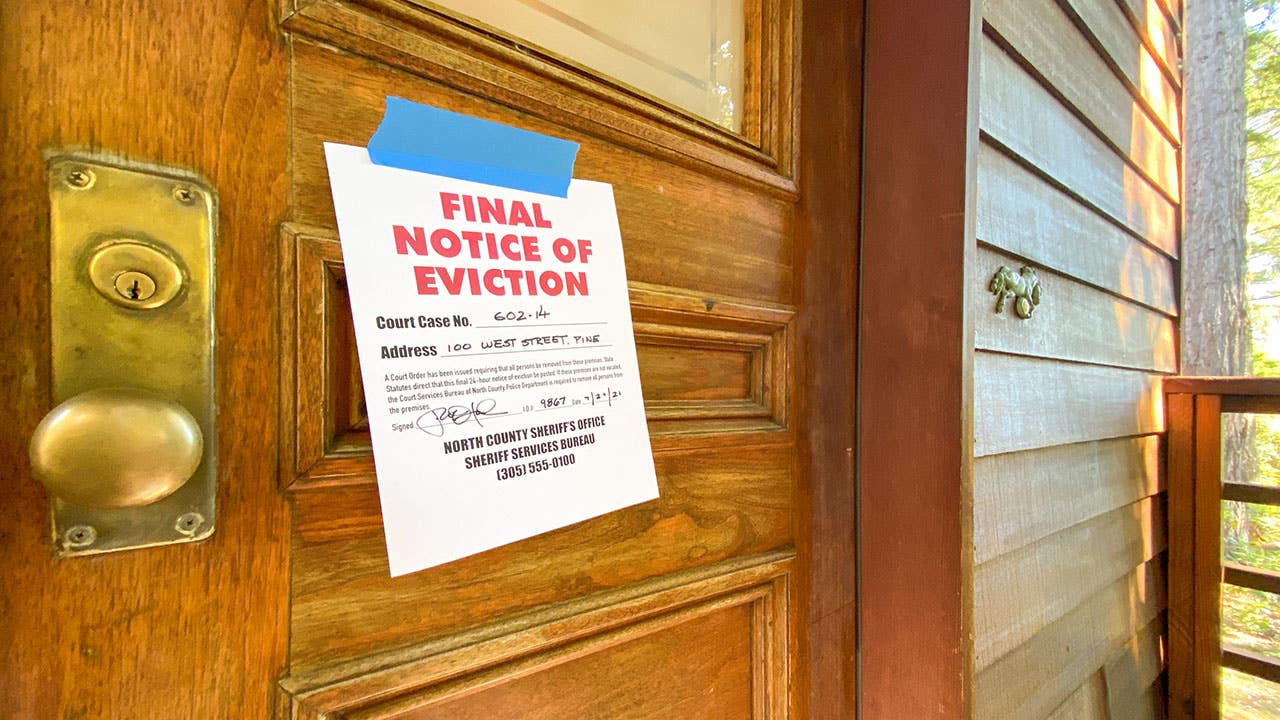How eviction can affect your credit




Key takeaways
- Evictions don’t appear on your credit report, but they still have the potential to hurt your credit.
- If a landlord sends your unpaid rent to collections, you could see a significant drop in your credit score.
- The collections item could remain on your credit report for seven years, making it more difficult to apply for credit cards, loans or your next rental.
Getting an eviction notice is something many of America’s renters have experienced. Every year, an estimated 7.6 million individual renters are threatened with eviction, according to Eviction Lab, an organization that tracks eviction filings. If you’re facing eviction, you may worry that the eviction will hurt your credit and make it harder to find a new place to live.
The good news is that an eviction order itself won’t show up on your credit report, but the circumstances around your eviction might affect your credit, including missing payments or being sent to collections.
Does eviction show up on your credit report?
Fortunately, an eviction itself won’t appear on your credit report. If you’ve been evicted for non-payment of rent, the landlord will likely hire a collections company to pursue your debt. This collections action will appear on your credit report and hurt your credit score. If you have a cosigner or guarantor on your lease, the debt will appear on their credit report as well.
Collections debt stays on your credit report for seven years and can drag down your score. Having a low credit score can affect you in many ways. It can make it harder to get loans of any kind — including credit cards, car loans and personal loans. When you do qualify, the rates and terms that you’ll receive won’t be as favorable as they would be for those with high credit scores. Having a low credit score could also make it more difficult to rent your next home.
Will an eviction hurt your credit?
If your landlord evicts you for unpaid rent, and your missed payments get sent to a collection agency, it can cause major harm to your credit score. That’s because payment history is the biggest credit scoring factor — it represents 35 percent of your FICO score.
However, if you’re evicted for non-financial reasons, such as violating lease terms, then the eviction won’t impact your credit file. The impact of eviction on your credit will largely depend on the circumstances of the eviction itself.
Can you keep an eviction off your credit report?
The best way to make sure that there isn’t a record of being evicted is to avoid the eviction altogether. If you’ve been issued an eviction notice, you may still have time to fix the problem before going to court. Read the notice to learn what steps, if any, you can take to remain in your home.
If the reason for the eviction is failure to pay rent, for example, catching up on payments could allow you to remain in your home, though the record of late payments will remain on your credit report if it’s already been reported. If you’re unable to pay what you owe, consider speaking to the landlord about possibly moving to a more affordable unit.
In other cases, such as an eviction notice for an unauthorized pet, you may be able to address the issue yourself rather than going to court and risking an eviction order. If you can work with the landlord to solve the problem that led to the eviction notice, that will be your best option.
What is eviction?
Eviction is a legal action a landlord can take to force a tenant to move out of a rental home. Non-payment of rent is the most common reason for eviction. However, tenants can be evicted for other reasons, such as not complying with community health and safety standards or having unauthorized subletters or pets.
Unfortunately, dishonest landlords may also invent bogus reasons to evict tenants, such as falsely claiming they need to make renovations or move into their property. This is why tenants have the right to fight evictions in court.
What to do if you receive an eviction notice
When you receive an eviction notice, you are being informed that a legal process has been initiated. Read the notice carefully to learn why your landlord wants you to move out and if there’s anything you can do to fix the problem to remain in your home. There are three types of eviction notices:
- Pay or quit notice
-
This type of notice gives you a few days to either pay your rent or move out. If you’re behind on your rent payments, you can catch up.
- Cure or quit notice
-
This type of notice gives you a set amount of time to fix a lease violation, such as having a dog when your landlord doesn’t allow pets. If you correct the violation, you don’t need to move.
- Unconditional quit notice
-
With this notice, you have no choice but to vacate, according to Nolo.com. It can usually only be issued after severe and repeated violations of your rental agreement or more than two months of failure to pay your rent.
The rules for evictions vary from state to state and even from city to city. Learn the laws of your community or contact an attorney who specializes in tenant law for help.
What happens if you get evicted?
If your landlord files an eviction lawsuit against you, the court will schedule a date and time for a hearing. A judge will review the evidence and decide whether the eviction can proceed.
As with most court proceedings, you are allowed to have an attorney when your case is heard. Only 4 percent of tenants are represented by a lawyer, compared to 83 percent of landlords. Not having a lawyer can put you at a severe disadvantage compared to the landlord.
If you’ve had your day in court and lost, the judge will likely issue an eviction order forcing you to move out as soon as possible. If you don’t leave when ordered to, many jurisdictions allow the police to enforce a judge’s eviction order.
Other ways future landlords may find out about an eviction
Some landlords check potential tenants’ rental history reports. A rental history report is a summary of your history as a renter, including previous addresses, late rent payments and court-ordered evictions.
Landlords use numerous tenant screening services to find rental history reports. For example, TransUnion, one of the three major credit bureaus, offers the SmartMove tenant screening platform. You can ask potential landlords what company they will use to screen you, then contact the company to request a copy of the report.
How can you remove an eviction from your record?
You can always pursue legal action in court if you’ve been wrongly evicted.
If you are being evicted for a legitimate reason, such as missed rent payments, you may be able to have your eviction records removed from tenant screening reports by negotiating with your landlord and offering to pay the entire amount due. That said, eviction orders can still show up in public records and background checks for as long as seven years.
If you are being evicted and your past-due rent has gone to collections, you can settle your debt. Once your debt is settled or paid off, you might be able to negotiate a pay-for-delete arrangement with the collections agency. There’s no guarantee the agency will agree, and if not, the unpaid debt will remain on your credit report for seven years. Regardless, settling your outstanding debt is still the best way to keep your eviction from causing more damage to your credit history and credit score.
What eviction resources are available?
If your landlord is threatening to evict you or has already filed an eviction lawsuit, there are resources available to help you deal with the process:
- Consumer Financial Protection Bureau (CFPB): The CFPB lists many renter protection resources on its website, including what to do if you are worried about a current or future eviction.
- LawHelp.org: This website offers free rent and eviction help resources, such as fact sheets and self-advocacy tools, and referrals to nonprofit legal aid organizations.
- Legal Services Corporation (LSC): The LSC maintains a database of state-level eviction laws. You can use it to learn about the laws in your area.
Bottom line
Getting evicted doesn’t necessarily hurt your credit, but if the eviction was due to unpaid rent, the debt will likely show up on your credit report. Fortunately, it’s possible to repair your credit. Negotiate with your landlord or the debt collector to settle the debt, then work on forming good financial habits. For example, you could get a secured credit card or credit builder loan and continue to make on-time payments to other lenders.

How to get an emergency loan
Getting an emergency loan is like applying for any personal loan.

Pros and cons of emergency loans
Emergency loans can be useful, but many have significant drawbacks.

How to get debt relief
Debt relief caters to different types of debt, credit scores and finances.

Alternatives to debt relief
Consider other ways to settle your debt without the help of a debt relief compan
Why we ask for feedback Your feedback helps us improve our content and services. It takes less than a minute to complete.
Your responses are anonymous and will only be used for improving our website.




